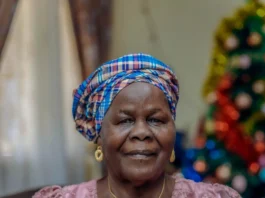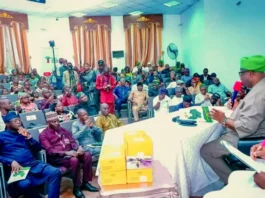A recent report by the United States Institute of Peace (USIP) underscores the urgent need for locally led solutions to address the persistent communal violence plaguing Nigeria’s Plateau State. The report, “Nigeria’s Plateau State: Communal Violence Requires Locally Led Solutions,” highlights the conflict’s complex dynamics and calls for a shift from top-down interventions to community-driven strategies that prioritize reconciliation, trust-building, and sustainable peace.
Plateau State, often referred to as the “Home of Peace and Tourism,” has been marred by decades of communal violence, primarily fueled by competition over land, resources, and political power. The conflict, which often pits farming communities against herders, has resulted in significant loss of life, displacement, and economic devastation. Despite efforts by state and federal governments to quell the violence, the report argues that external interventions have largely failed to address the root causes of the crisis.
According to the USIP report, the key to resolving the conflict lies in empowering local communities to take ownership of peacebuilding efforts. “Top-down approaches have often overlooked the nuanced realities on the ground,” the report states. “Sustainable peace can only be achieved by involving local leaders, women, youth, and other stakeholders in designing and implementing solutions that address their unique needs and challenges.”
The report identifies several critical steps for fostering lasting peace in Plateau State:
1. Strengthening Local Governance: Enhancing the capacity of local government institutions to mediate conflicts and deliver justice.
2. Promoting Dialogue and Reconciliation: Facilitating community-led dialogues to rebuild trust and foster mutual understanding among conflicting groups.
3. Addressing Economic Inequalities: Implementing programs that create economic opportunities and reduce competition over scarce resources.
4. Engaging Women and Youth: Recognizing the pivotal role of women and young people in peacebuilding and ensuring their active participation in decision-making processes.
5. Improving Security Measures: Collaborating with security agencies to protect vulnerable communities while avoiding heavy-handed tactics that could exacerbate tensions.
The report also emphasizes the importance of leveraging traditional conflict resolution mechanisms, which have historically played a significant role in mediating disputes within Plateau’s diverse communities. By integrating these indigenous practices with modern peacebuilding strategies, the report suggests that a more holistic and effective approach can be developed.
Governor Caleb Mutfwang’s administration has welcomed the findings of the report, expressing a commitment to adopting locally led solutions as part of its broader peace and development agenda. “We recognize that the path to lasting peace in Plateau State requires the active involvement of our communities,” said a spokesperson for the governor. “We are committed to working with all stakeholders to implement strategies that address the root causes of conflict and promote sustainable development.”
The USIP report serves as a timely reminder of the complexities of communal violence in Plateau State and the need for innovative, inclusive, and locally grounded solutions. As the state continues to grapple with the devastating impact of conflict, the call for community-driven peacebuilding offers a glimmer of hope for a more peaceful and prosperous future.
For more details, read the full report [here].



